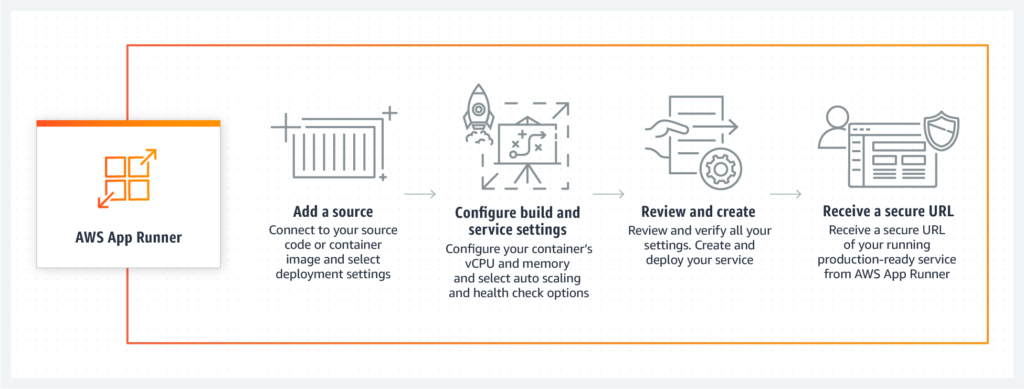AWS Delivers Managed DevOps Environment for Container Apps
Amazon Web Services (AWS) this week made a managed AWS App Runner service for building container applications generally available.
Scott Sanchez, head of product marketing for containers and serverless for AWS, says, in effect, AWS is now providing the entire DevOps backend that developers require to build and deploy applications now as a service.
Developers can choose to either use their existing desktop tools to encapsulate software artifacts or simply indicate which artifacts, residing in a Git repository, they want AWS App Runner to encapsulate on their behalf.
App Runner eliminates the need to manage infrastructure, servers or orchestration platforms such as Kubernetes, says Sanchez. From an application development perspective, App Runner is the most comprehensive managed service AWS has made available to date, notes Sanchez.
While AWS enables IT teams to deploy DevOps infrastructure themselves or take advantage of, for example, a managed Kubernetes service, Sanchez says there are many organizations that just want to focus their efforts on writing code.
In the wake of the COVID-19 pandemic, there’s no doubt organizations are under more pressure to deliver applications that drive various digital business transformation initiatives faster. The issue many are trying to come to terms with is the degree to which they want to manage the underlying infrastructure employed to build and deploy applications.
In fact, Sanchez notes that one of the reasons there are not more developers employing containers to build applications is that it’s too difficult to set up and maintain back-end application development environments. It’s estimated there are roughly 4 million developers in the enterprise that have the skills required to build containerized applications out of a base that is estimated to be as high as 16 million. Making it easier for the rest of that enterprise development community to build applications should significantly increase the overall size of the container development community, notes Sanchez.
It’s not clear to what degree rival cloud service providers will also be providing managed services that automate DevOps processes on behalf of developers, but it’s probable that with the rise of various forms of artificial intelligence the entire application development and deployment process will become even more automated. It will be up to each organization to determine the degree to which they want to rely on a managed service provided by a cloud service provider. Most organizations are starting to build and deploy applications on multiple clouds while continuing to deploy applications in on-premises IT environments. Building applications using containers gives those organizations the ability to deploy applications anywhere, regardless of where they were initially developed.
AWS, of course, is betting organizations will view the production environments it makes as the path of least resistance for any application developed on its platform.
Regardless of where containerized applications are built or deployed, there will soon be a lot more of them running in production environments. The next challenge will be figuring out a way to manage them all, alongside all the existing monolithic applications that are not likely to go away any time soon.





